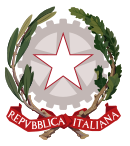- Constitutional Court of Italy
-
Italy 
This article is part of the series:
Politics and government of
ItalyConstitutionExecutive- President (List)
- Prime Minister (List)
Judiciary- Constitutional Court
- Court of Cassation
- Court of Assizes
- Italian Council of State
- Italian Criminal Procedure
- Judiciary of Italy
Divisions- Regions
- Politics of Aosta Valley
- Politics of Piedmont
- Politics of Lombardy
- Politics of Veneto
- Politics of Trentino-Alto Adige/Südtirol
- Politics of Friuli-Venezia Giulia
- Politics of Emilia-Romagna
- Politics of Liguria
- Politics of Tuscany
- Politics of Umbria
- Politics of Marche
- Politics of Molise
- Politics of Lazio
- Politics of Abruzzo
- Politics of Campania
- Politics of Apulia
- Politics of Calabria
- Politics of Sicily
- Politics of Sardinia
- Provinces
- Municipalities
ElectionsForeign policy
The Constitutional Court of Italy (Italian: Corte costituzionale della Repubblica Italiana) is a supreme court of Italy, the other being the Court of Cassation. Sometimes the name Consulta is used as a metonym for it, because its sessions are held in Palazzo della Consulta in Rome.
The Constitutional Court is composed of 15 judges: one-third appointed by the President, one-third elected by Parliament, and one-third elected by the ordinary and administrative supreme courts. The members then elect the President of the Court, which is currently since 6 June 2011 Alfonso Quaranta[1], from among its members in a secret ballot, by absolute majority (that is, eight votes in the case of a full court), and if necessary, a run-off election between the two judges with the most votes after the second ballot. One or two Vice-Presidents, appointed by the President of the Court, stand in for the President in the event of his absence for any reason. The constitutional court passes on the constitutionality of laws, and there is no right of appeal on these decisions.
The court is a post-World War II innovation. Since 12 October 2007, when reform of the Italian intelligence agencies approved in August 2007 came into force, the Court may not be denied access to documents under the pretext of state secret.
See also
- Judiciary
- Rule of law
- Rule According to Higher Law
References
- ^ http://www.ilsole24ore.com/art/notizie/2011-06-06/alfonso-quaranta-nuovo-presidente-095004.shtml?uuid=AaMaSWdD
External links
Categories:- Judiciary of Italy
- National supreme courts
- Constitutional courts
Wikimedia Foundation. 2010.
